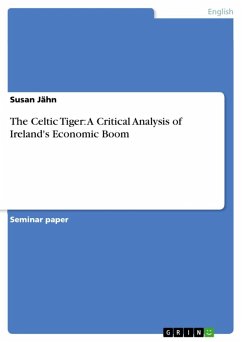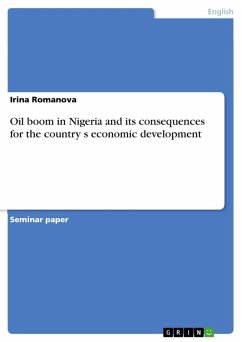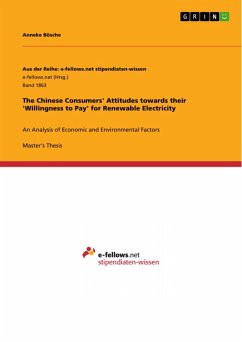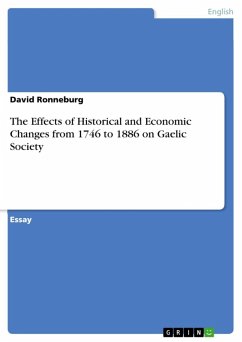Seminar paper from the year 2004 in the subject English Language and Literature Studies - Culture and Applied Geography, grade: 1,3 (A), Technical University of Chemnitz, course: The Making and Remaking of Ireland, language: English, abstract: Ireland's economic history does not really have many success stories to tell. It is mainly dominated by stagnation and decline and a high dependence on Great Britain. During the 18th and 19th century Ireland's economic performance was rather weak. According to Bradley (1999:42) the industrial revolution, which was a general boom for most parts of Great Britain, was only concentrated in a few Irish sectors, such as brewing, linen and shipbuilding, and mainly only in Belfast and Dublin. In the middle of the 20thcentury, during the so-called protectionist period, Ireland's economic situation did not improve. Import quotas and high tax barriers were responsible for a poor regional competitive position of the country. The Republic of Ireland was an unattractive, rural and backward investment location with serious problems such as high unemployment and low standards of living. Then, almost overnight, Ireland's economic performance changed rapidly. The formerly isolated country started to become equal among the other nations in Europe and the world. Due to foreign investment, a significant and fast economic growth in key sectors such as information technology helped to transform the former weak Irish economy in one of Europe's most successful economies. Thus, the Republic of Ireland not only became more advanced than the United Kingdom, it also replaced its former traditional and depressing image by a modern and cosmopolitan one. This economic miracle in Ireland during the 1990s is called theCeltic Tiger,a name which points at the economic strength of the Asian countries Hong Kong, Singapore, Taiwan and South Korea. However, it appears evident that such a rapid and successful development of a formerly weak economy not only bears advantages. Recent discussions in the literature have shown that concerning Ireland's economic boom appearances are deceptive. John Gormley uttered the above-mentioned quotation2in the 200thissue of the Resurgence Magazine Online. In all probability, Ireland's success story could not have been looked at from a more critical point of view. Gormley hints at the short-livedness of theCeltic Tigerera and moreover stresses thatall that glitters is not gold.
Dieser Download kann aus rechtlichen Gründen nur mit Rechnungsadresse in A, B, BG, CY, CZ, D, DK, EW, E, FIN, F, GR, HR, H, IRL, I, LT, L, LR, M, NL, PL, P, R, S, SLO, SK ausgeliefert werden.









